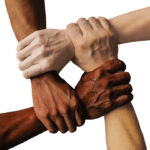Table of Contents:
– Introduction
– The Influence of Religion on Society
– Religion and Morality
– Religion and Ethics
– Religion and Social Justice
– Religion and Politics
– Religion and Education
– Religion and Science
– Religion and Art
– Religion and Gender
– Religion and Family
– Religion and Health
– Religion and Technology
– Religion and Environmentalism
– FAQs
– Conclusion
Article:
# The Role of Religion in Shaping Society and Personal Beliefs
**Introduction:**
Religion has played a significant role in shaping society and personal beliefs throughout history. It has shaped cultures, influenced moral codes, and provided a sense of purpose and meaning to individuals and communities. This article will explore the multifaceted impact of religion on various aspects of society, from morality and ethics to politics and science.
**The Influence of Religion on Society:**
Religion has a profound influence on society, affecting its values, traditions, and social norms. It provides a moral compass that guides individuals' behavior, helping to maintain social order and cohesion. From promoting honesty and kindness to discouraging harmful actions, religion helps society establish a shared ethical framework.
**Religion and Morality:**
Morality, the understanding of what is right and wrong, is deeply intertwined with religion. Religious teachings often establish moral standards and principles that govern individual and communal behavior. These moral codes can shape societal values, influencing laws, and regulations that govern societies.
**Religion and Ethics:**
Ethics goes beyond defining right and wrong; it explores complex moral dilemmas and ethical decision-making. Religion provides individuals with ethical guidelines and frameworks, helping them navigate challenging ethical situations in their personal and professional lives. It enables individuals to make decisions based on their moral convictions.
**Religion and Social Justice:**
Religion has been a driving force for social justice movements throughout history. Many religious doctrines promote compassion, equality, and justice. Religious organizations and leaders often advocate for social changes, fighting against discrimination, poverty, and other injustices.
**Religion and Politics:**
The intersection of religion and politics has been a contentious topic in many societies. Religion can both shape political ideologies and be influenced by political movements. It can provide a moral foundation for political decisions and influence voting patterns. However, the influence of religion in politics can also be a source of division and conflict.
**Religion and Education:**
Religion has played a significant role in education, shaping curricula and moral education. Religious schools provide instruction based on specific religious beliefs and values. Moreover, religion often influences the broader educational system, influencing the inclusion or exclusion of religious perspectives in textbooks and classroom discussions.
**Religion and Science:**
The relationship between religion and science has been a subject of debate throughout history. While religious beliefs have sometimes been at odds with scientific discoveries, many religious individuals and organizations have embraced scientific advancements. Some argue that religion and science can coexist, providing different perspectives on the same questions about the universe and human existence.
**Religion and Art:**
Religion has inspired countless works of art throughout history. From religious paintings and sculptures to sacred music and literature, religion has provided artists with themes and motifs that transcend time. The role of religion in art goes beyond aesthetics; it often communicates spiritual and moral messages to viewers.
**Religion and Gender:**
Religion has had a significant impact on gender roles and expectations in different societies. Some religions prescribe specific roles for men and women, influencing their social, familial, and professional lives. The relationship between religion and gender has been a subject of debate, with ongoing discussions about gender equality within religious institutions.
**Religion and Family:**
Religion often plays a crucial role in family life, providing a framework for relationships, rituals, and values. It can shape family dynamics, including parenting styles, gender roles, and intergenerational relationships. Religion also provides a source of support and community for families, helping them navigate challenges and celebrate milestones.
**Religion and Health:**
Religion has been shown to have an impact on individuals' physical and mental health. For many, religious beliefs and practices provide a sense of purpose, hope, and emotional support during difficult times. Furthermore, religious communities often offer social support networks that contribute to overall well-being and resilience.
**Religion and Technology:**
As technology continues to shape society, religion has also adapted to utilize these advancements. Religious organizations use technology to reach and engage their members, from live-streamed religious services to online religious education platforms. Additionally, technology has also raised ethical questions related to topics such as artificial intelligence and gene editing, where religious beliefs and values come into play.
**Religion and Environmentalism:**
Religion can also play a significant role in environmental stewardship and sustainability. Many religious traditions emphasize humanity's responsibility to care for the Earth and its resources. Religious communities have been active in promoting environmental awareness, conservation efforts, and sustainable practices.
**FAQs**
1. Why is religion important in shaping personal beliefs?
2. How does religion influence social justice movements?
3. Is there a conflict between religion and science?
4. How does religion impact gender roles?
5. Can religion contribute to mental health and well-being?
**Conclusion:**
The role of religion in shaping society and personal beliefs is undeniable. It influences ethical codes, social justice movements, politics, education, and various aspects of individual and communal life. Religion provides individuals with a sense of purpose and moral guidance while offering a framework for understanding the world and one's place in it.
Incorporating religion into the conversation and understanding its diverse impacts can help foster meaningful dialogue and promote tolerance and understanding among individuals with different belief systems. As society continues to evolve, the role of religion will undoubtedly continue to shape and reshape the fabric of our communities.













